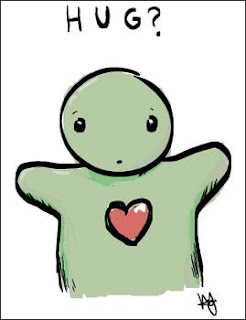It directs people to a site called jesustattoo.org. No specific church is taking responsibility for the billboards. In the "About Us" section on the site, those responsible for them say that they are just what they seem, a small group of people who want to lead others to Jesus. Looking at the site, it seems to be pretty theologically neutral. It's definitely Protestant as it features a Sinner's prayer, but I found nothing there that was particularly problematic from a Catholic perspective. It even says that a follower of Jesus needs to belong to a community of believers which is an idea found more readily in Catholic circles.
So, what about the tats?
The Catholic Church teaches that tattoos as such are morally neutral. That said, there are three main factors that could push it over the fence either way.
- The image used or...
- the location of the tattoo could be immoral or inappropriate
- Your motivation in getting the tattoo could be impure. "Am I seeking to glorify God or draw attention to myself? Will my tattoo be a source of contention for my loved ones? Will getting a tattoo cause me to disobey my parents? Will my tattoo cause someone who is weak in the faith to stumble?" are all good questions to ask (Source).
A big part of the controversy seems to be the idea of Jesus having one. The website features videos where people tell their stories of how Jesus changed their lives. In these videos, an actor playing Jesus changes the tattoos on the new Christians. They were tattooed with words like "addiction" but Jesus changes those tattoos to say thing like "hope." Jesus, in turn, takes the new Christian's old tattoo onto himself. Here, it's easier to show than tell:
While the details might be offensive to some, the general idea here is very true and Biblical:
He himself bore our sins in his body upon the cross, so that, free from sin, we might live for righteousness. By his wounds you have been healed.- 1 Peter 2:24
For our sake he made him to be sin who did not know sin, so that we might become the righteousness of God in him.- 2 Corinthians 5:21Jesus is the Lamb of God, not just because he's perfect or because he's cute, but because lambs were used for sacrifice.
Jesus was pure, that goes without saying, but he did bear our sins on the cross and I think that this tattoo idea is a pretty creative way of making that reality tangible for people. It makes a theological idea visual in a society in which we are getting more and more used to getting our information visually rather than verbally.
A tattooed Jesus doesn't bother me, but it can be used as a source for meditation. What tats did He get from me? What sins do I need to confess? What sins do I need to remove from my life?














.jpg)
.jpg)
.jpg)
.jpg)








































